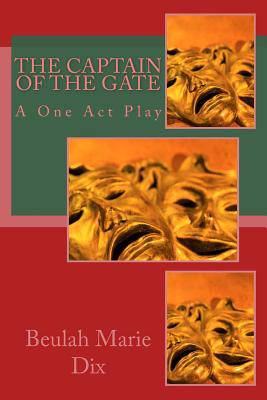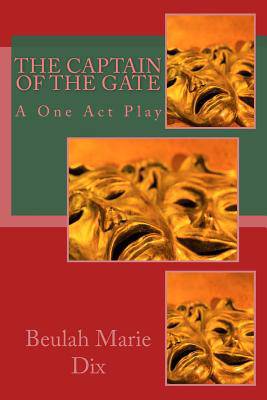
- Afhalen na 1 uur in een winkel met voorraad
- Gratis thuislevering in België vanaf € 30
- Ruim aanbod met 7 miljoen producten
- Afhalen na 1 uur in een winkel met voorraad
- Gratis thuislevering in België vanaf € 30
- Ruim aanbod met 7 miljoen producten
Zoeken
Omschrijving
This one act play is made available to all. It may be used freely to perform in any environment. No Royalties owed. You do not have to buy multiple copies to perform, copy this book. You may change lines and scenes. Please give credit to the original author as inspiration of the work. The elder Dumas, who wrote many successful plays, as well as the famous romances, said that all he needed for constructing a drama was "four boards, two actors, and a passion." What he meant by passion has been defined by a later French writer, Ferdinand Brunetière, as a conflict of wills. When two strong desires conflict and we wonder which is coming out ahead, we say that the situation is dramatic. This clash is clearly defined in any effective play, from the crude melodrama in which the forces are hero and villain with pistols, to such subtle conflicts, based on a man's misunderstanding of even his own motives and purposes. In comedy, and even in farce, struggle is clearly present. Here our sympathy is with people who engage in a not impossible combat-against rather obvious villains who can be unmasked, or against such public opinion or popular conventions as can be overset. The hold of an absurd bit of gossip upon stupid people is firm enough in "Spreading the News"; but fortunately it must yield to facts at last. The Queen and the Knave of Hearts are sufficiently clever, with the aid of the superb cookery of the Knave's wife, to do away with an ancient and solemnly reverenced law of Pompdebile's court. Again, in comedies as in mathematics, the problem is often solved by substitution. The soldier in Mr. Galsworthy's "The Sun" is able to find a satisfactory and apparently happy ending without achieving what he originally set out to gain. Or the play which does not end as the chief character wishes may still prove not too serious because, as in "Fame and the Poet," the situation is merely inconvenient and absurd rather than tragic. Now and then it is next to impossible to tell whether the ending is tragic or not. It is natural for us to desire a happy ending in stories, as we desire satisfying solutions of the problems in our own lives. And whenever the forces at work are such as make it true and possible, naturally this is the best ending for a story or a play. Where powerful and terrible influences have to be combated, only a poor dramatist will make use of mere chance, or compel his characters to do what such people really would not do, to bring about a factitious "happy ending." One of the best ways to understand these as real stage plays is through some sort of dramatization. This does not mean, however, that they need be produced with elaborate scenery and costumes, memorizing, and rehearsal; often the best understanding may be secured by quite informal reading in the class, with perhaps a hat and cloak and a lath sword or two for properties. With simply a clear space in the classroom for a stage, you and your imaginations can give all the performance necessary for realizing these plays very well indeed. Of course, you must clearly understand the lines and the play as a whole before you try to take a part, so that you can read simply and naturally, as you think the people in the story probably spoke. Some questions for discussion in the appendix may help you in talking the plays over in class or in reading them for yourself before you try to take a part. You will find it sometimes helps, also, to make a diagram or a colored sketch of the scene as the author describes it, or even a small model of the stage for a "dramatic museum" for your school. If you have not tried this, you do not know how much it helps in seeing plays of other times, like Shakespeare's or Molière's; and it is useful also for modern dramas. Such small stages can be used for puppet theatres as well. "The Knave of Hearts" is intended as a marionette play, and other dramas-Maeterlinck's and even Shakespeare's-have been given in this way with very interesting e
Specificaties
Betrokkenen
- Auteur(s):
- Uitgeverij:
Inhoud
- Aantal bladzijden:
- 36
- Taal:
- Engels
Eigenschappen
- Productcode (EAN):
- 9781494809430
- Verschijningsdatum:
- 27/12/2013
- Uitvoering:
- Paperback
- Formaat:
- Trade paperback (VS)
- Afmetingen:
- 152 mm x 229 mm
- Gewicht:
- 63 g

Alleen bij Standaard Boekhandel
+ 20 punten op je klantenkaart van Standaard Boekhandel
Beoordelingen
We publiceren alleen reviews die voldoen aan de voorwaarden voor reviews. Bekijk onze voorwaarden voor reviews.











